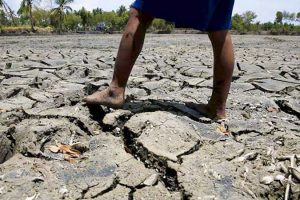




January Economic Update: Growth slows, prices rise
 DOWNLOAD
DOWNLOAD

Inflation Update: Up, up, and away?
 DOWNLOAD
DOWNLOAD

Quarterly Economic Growth Release: Growth takes on a slower pace
 DOWNLOAD
DOWNLOAD


PHL eyes contingency plans for farmers ahead of El Niño

THE GOVERNMENT is working on contingency plans ahead of the El Niño weather pattern that is likely to develop later this year.
In a statement on Wednesday, the National Economic and Development Authority (NEDA) said that the recently created Economic Development Group (EDG) met to discuss issues that “could potentially affect the trajectory of the Philippine economy,” such as the El Niño.
The state weather bureau forecasted that El Niño may occur in the next three months at 80% probability and may last until the first quarter of next year.
“The Department of Agriculture, along with NEDA, proposed preparatory activities to adequately equip, prepare, and assist farmers in coping with the looming El Niño phenomenon,” the NEDA said.
It cited initiatives such as “retooling and strengthening the government’s disaster response, conducting weekly monitoring of local field conditions, conducting regional assessments, ensuring adequate buffer stocks, and promoting early planting for the dry season in water deficit areas.”
In March, President Ferdinand R. Marcos, Jr. approved the creation of the EDG to make recommendations to “ensure the country’s rapid, inclusive, and sustained growth.”
The group is co-chaired by the Department of Finance (DoF) and the NEDA.
“The Economic Development Group remains committed to ensuring that the country stays on track to meet its medium-term socioeconomic goals, despite domestic challenges and constraints and a weaker global growth outlook,” NEDA Secretary Arsenio M. Balisacan said.
Meanwhile, the group said it is also working on a monitoring system for the country’s infrastructure flagship projects (IFPs).
“NEDA is currently developing a public dashboard for the IFPs to enhance transparency and accountability among implementing agencies. The dashboard will also help in identifying and addressing bottlenecks and constraints that may hinder the timely implementation of the projects,” it said.
In March, the NEDA Board announced that it approved 194 infrastructure flagship projects worth P9 trillion.
The government is also working on dashboards to show relevant statistics to aid in providing “timely recommendations and policies related to importation and measures to address high food inflation in the country.”
“The dashboards shall serve as a ‘single source of truth’ to expedite data processing in government and to foster harmonization of initiatives across agencies,” it added. — Luisa Maria Jacinta C. Jocson
This article originally appeared on bworldonline.com





 By BusinessWorld
By BusinessWorld